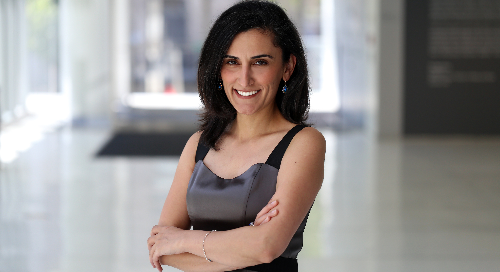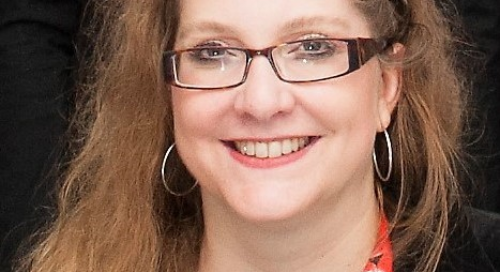women-in-engineering-an-interview-with-manjula-r-bharamgoudra
April 22, 2020
It’s no secret: Engineering is not just a man’s world. Perceptions – along with demographics - are shifting, and Wiley is proud to be part of the movement to raise the profile of women in engineering, to inspire future generations.
Here, we celebrate engineering researchers in a collection of interviews with authors, editors, editorial board members, and society contacts. In this piece, we meet Dr. Manjula R Bharamagoudra, Co-author of a research article in the International Journal of Communication Systems.
How or why did you choose engineering as a career path/area of study?
The electronic gadgets used in our day to day life (for example smartphones, televisions, fridges, washing machines, and so on) fascinated me to understand the behavior of these and made me technology crazy. My passion for creativity and technology made me realize that, through engineering, we can have solutions to all societal problems in a smarter way. I believe engineers can provide the greatest contribution to the nation and create an impact on society. Also, it gives the opportunity to travel to different countries, meet people, and exchange the thoughts which
enhances confidence.
What inspires you about Engineering?
Engineering is solving real-time problems through the use of tools, techniques, skills, and knowledge to create solutions rather than just reading. The technical concepts can be understood; though hands-on experience makes it interesting. Engineering is everything as it involves research and innovation which makes human life comfortable.
What challenges do women face in the Engineering professions/academia?
Women in engineering, academia, or any profession generally face gender bias with respect to opportunities or challenging work. We are thought of as less committed because we have to be responsible for our kids and family. This is a major inconsideration because a father is as responsible for a child and family as much as a mother is. A married woman, especially if she is in the family way, is not considered as accountable for critical projects as is a man. But the situation has been changing over the last couple of decades. An enormous number of women have joined the professional workforce and are an indispensable part of it. In fact, now the gender equality in professions is seeming achievable. My colleagues and management at work have been supportive and they treat me as equally competent.
What is the ratio of female to male in your workplace/faculty?
Females are around 40% - 45%; Our management maintains the equal ratio; it's my pleasure to share that 4% of them are at the top positions (Director) in academia.
What is the most exciting thing about your job?
Teaching is a noble profession and I am responsible for nurturing the future citizens of our country, both morally and technically. I am part of the student community who have tremendous energy, and thoughts to develop innovative ideas and products to solve the problems of society.
What does a typical day in your job involve?
Motivation and Innovation: every day interacting with the student community motivating them to be a researcher, an innovator by inculcating the ethical practices to contribute to the societal benefit. Enhancing learning skills through practical concepts and involving them in solving real-time problems. Also, working with the academic and research team.
What would you say to girls in school/college who may be considering Engineering as a career choice/study option?
Go ahead you are making the correct choice; you are going to be a contributor to society. Problems can be better addressed/resolved with the engineering skill sets. Be passionate, deterministic, and don't give up, you have all the ability to develop a solution for a demanding situation.
Do you think the perception of Engineering as a male-dominated career can be changed, and if so, how?
There is nothing that's inherently male or female about engineering and technology. However, the role of parents, teachers, and social media will play a vital role in changing the perception. Parents can emphasize the products used daily, highlighting the importance of engineering skills.
Similarly, at the school level, teachers can have project-based learning to enhance their learning skills. Also, social media can project the stories of women technocrats, scientists, innovators, entrepreneurs through short films, interviews and so on.
| You can check out the full collection of interviews at | |
| Women in Engineering | |
| Help us to inspire by sharing our Women in Engineering stories on Facebook and Twitter! | |












